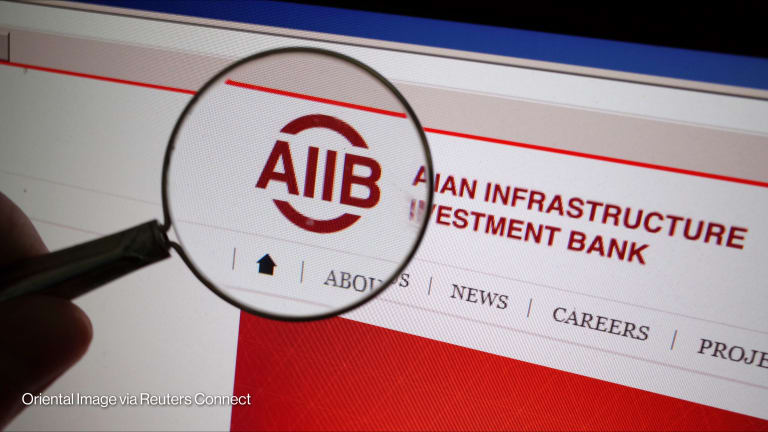
SAN FRANCISCO — The complaints that communities file to development agencies provide valuable lessons to prevent future harm. But that data has existed in silos, said Natalie Bridgeman Fields, founder and executive director of Accountability Counsel, a nonprofit that advocates for people who have been harmed by international development projects.
Now, for the first time, these complaints will not remain in the accountability offices where they were filed, or in an Excel spreadsheet accessible only to the accountability staff, but rather in an online database.
“It’s a powerful tool for filing complaints, but also possibly a powerful tool for avoiding the need to file a complaint.”
— Samer Araabi, research director, Accountability CounselLast week, Accountability Counsel launched a database that includes every complaint ever filed to the independent accountability mechanisms of bilateral and multilateral development finance institutions.
To date, 1,300 complaints have been filed to the accountability offices of 13 institutions — including the Overseas Private Investment Corporation, Asian Infrastructure Investment Bank, Inter-American Development Bank, African Development Bank, and International Finance Corporation — and all of these human rights and environmental grievances are now available on the Accountability Console.
At a launch event in San Francisco, the team behind the database discussed how it can provide value for groups ranging from communities and advocates seeking justice to philanthropists and investors wanting to understand the social and environmental risks that could undermine their impact goals.
Samer Araabi, a full-stack software engineer with experience in humanitarian and development assistance who led the effort to build the tool, walked an audience of activists, human rights lawyers, investors, and others through a demo.
He spoke first from the perspective of someone filing a complaint, then from the perspective of someone considering an investment in a low- or middle-income country.
“Imagine a community member in Honduras facing a hydroelectric dam being constructed near their village,” he said.
He or she could search complaints filed to IDB, then narrow those results down, for example by filtering for energy projects, then select individual projects and go through the complaint stages.
“It’s a powerful tool for filing complaints, but also possibly a powerful tool for avoiding the need to file a complaint,” Araabi said.
The Accountability Console can also help impact investors get a better sense of the social and environmental impacts of an investment, Fields said, offering the example of investors interested in solar power in Africa.
“This is not meant to replace on-the-ground due diligence at all,” she said.
Mechanisms need to be put in place to ensure these investments do not have unintended consequences, and this database is one example of a resource that can help, Fields added.
In an email to supporters following the event, she explained how the data reveals that too few complaints actually get through the system and achieve a result, and said these discoveries in the data can inform efforts to ensure communities are heard.
For the past year, Accountability Counsel liaised with members of the International Advocates Working Group, a network of more than 100 civil-society organizations working on nonjudicial grievance mechanisms, to gather their input.
Araabi and his colleague Marisa Lenci, who comprise the two-person research team at the 20- person organization, endeavored to ensure the database was intuitive to use and interoperable with other related datasets, including other databases on project finance or international investment.
The Accountability Console website outlines the benefits of this data for a range of users — including impact investors, philanthropists and asset managers — at a time when people are demanding more accountability from these groups.
“Foundations are under attack,” said Christy Chin, partner at the Draper Richards Kaplan Foundation, which supports early-stage, high-impact social enterprises and has supported Accountability Counsel.
Speaking on a panel with Fields, Chin explained how some foundations that spend 5% of their assets on philanthropy invest the other 95% in areas that undermine their work.
“Tools like this help foundations fulfill their public good and be intentional about it,” she said.
It is expensive to figure out the social and environmental impacts of an investment, then follow that investment to make sure the intent is upheld, but the Accountability Console can help, Chin added.
A full 60% of complaints filed by communities are failing to reach a substantive stage in the complaint process, according to analytical tools in the Accountability Console database.
“This means that a majority of local people trying to be heard through an accountability office are not achieving that,” Fields told Devex via email.
The database makes this information actionable, as the Accountability Counsel team can dig deeper into the reason that a complaint isn't progressing and log explanations for each complaint. Moving forward, the Accountability Counsel team plans to improve the system — for example, by researching the high number of cases that were closed without outcomes because they were categorized as ineligible.
On Jan. 23, Accountability Counsel will host a free webinar walking potential users through the technology. The organization is charging for premium access on a sliding scale but will waive the fee for users on a limited budget. Moving forward, the goal is to have other providers of responsible investing data use the Accountability Console as a resource to gather information for clients.
The tool has already helped Accountability Counsel and its partners in the International Advocates Working Group identify trends they had not seen before. For example, a policy-benchmarking tool that compares the approaches of different independent accountability mechanisms revealed how some practices lead to bottlenecks.
But its impact in the field remains to be seen.
“If any community group can use this information to file a complaint that otherwise wouldn’t have made it into the process, that alone makes it worth all of this effort,” Araabi told Devex.








